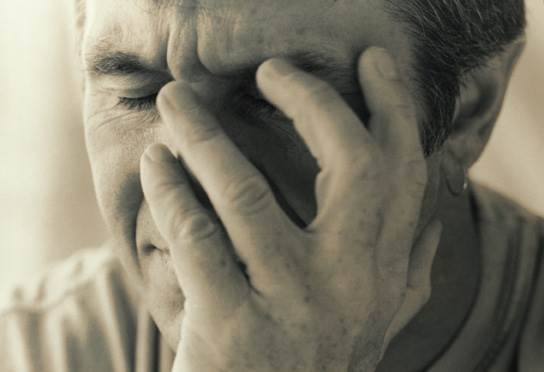
Grieving people
experience many feelings, even guilt.
You feel guilty for the things you didn’t say before you
lost your loved one, or for the relief you feel when someone has died after a
long and serious illness. According to mental health social worker Sarah
Wayland, people are flooded with emotions and feelings in the early days after
a loss, and in the weeks, months and years to come.
“Grief is not a constant feeling,” she says. “It ebbs and
flows depending on the nature of your loss, what else is happening in your
life, and how resilient you are.”
According to Wayland, people often experience surprising
feelings with grief, such as anger, confusion, ambivalence, hopelessness and
anxiety. The first step in dealing with them is to seek support from a partner,
a friend, a GP or a counsellor skilled in grief work.
“It might just be that the person requires a safe place to
explore what the loss has meant to them,” says Wayland. “Grief isn’t about
finding closure, it’s about giving yourself time to adjust to what has
happened.”
Grief can sometimes be too intense for too long.
There is no established period for the grieving process; it
can last a lifetime. Although the majority of people will grieve in their own
time and recover, some may get into psychological strife and need extra help.
“Extreme reactions to grief can involve other mental illnesses such as anxiety
and depression,” says Cantwell-Bartl.

There is no
established period for the grieving process; it can last a lifetime.
There are many reasons why grief can persist or be too
intense. “Possible scenarios might be a traumatic death, such as an unexpected
illness or accident, when someone is unprepared for that death,” she says.
“Another example is a stigmatized death such as a suicide, or drug overdose, or
a person who’s had a problematic relationship with someone who’s died, such as
an abusive parent. They may experience trauma as well as grief.”
Grieving people always need help as well as someone to talk to.
Often they don’t know what they need, but instead of being
concerned about intruding, take the initiative with a grieving person. Bring
food, offer to help with the kids, and extend social invitations without taking
it personally if they refuse, or change their minds.
When it comes to talking, however, Sarah Wayland says that
grieving people are often met with silence, or well-worn platitudes. “In the
early days after a loss, people find it easier to offer condolences,” she says.
“But as time moves on, the grieving person often feels that they haven’t been
given the space to talk about what they’re experiencing.”
Allow a grieving person to share how they are feeling,
whether it’s difficult to listen to or not. You also don’t have to put aside
your own sadness. “It’s okay to acknowledge the sadness you feel on behalf of
another,” says Wayland. “It’s okay to show that their loss has affected you,
while giving them space to lean on someone.”

Often they don’t
know what they need, but instead of being concerned about intruding, take the
initiative with a grieving person.
10 ways to help yourself
The Australian Centre for Grief and Bereavement says there
are many things a person can do to ease their pain after losing a loved one.
1.
Put off for six to 12 months any major decisions that can’t be reversed.
2.
Keep a journal of your feelings.
3.
Create a memorial; do, or make, something to honor your loved one.
4.
Develop your own rituals; light a candle, listen to music, or find a
special place to think.
5.
Express your thoughts and feelings privately, such as writing a letter,
drawing, collecting photos, or crying.
6.
Deal with pent-up energy by exercising – walk, swim, garden or do
anything you enjoy.
7.
Draw on religious or spiritual beliefs if you find it helpful.
8.
Read about other people’s experiences with grief.
9.
Try meditation, relaxation techniques or massage therapy.
10. To
help sleeplessness, get plenty of exercise, limit alcohol, eat before going to
bed, and stick to a daily routine.